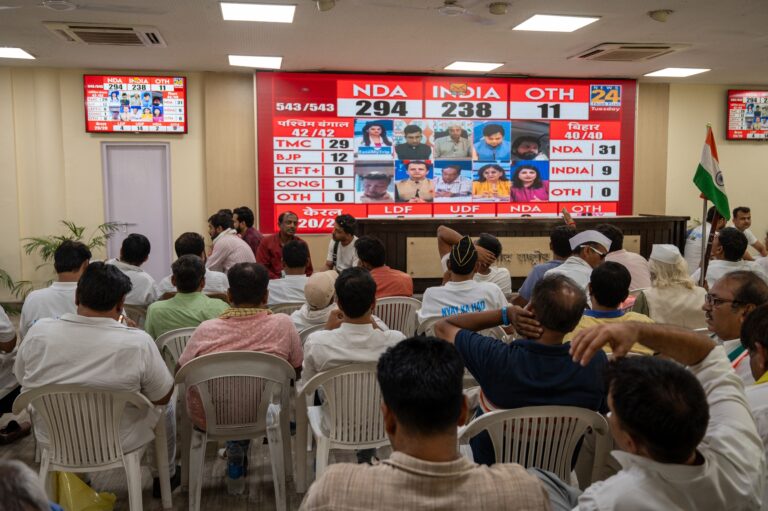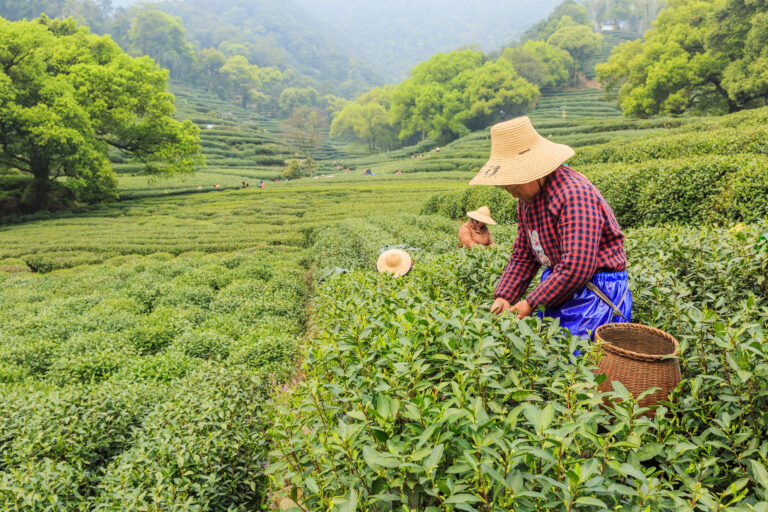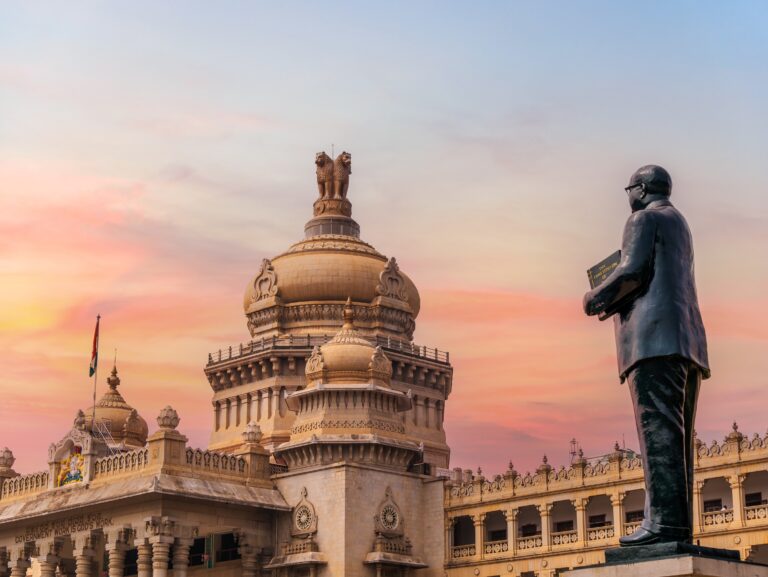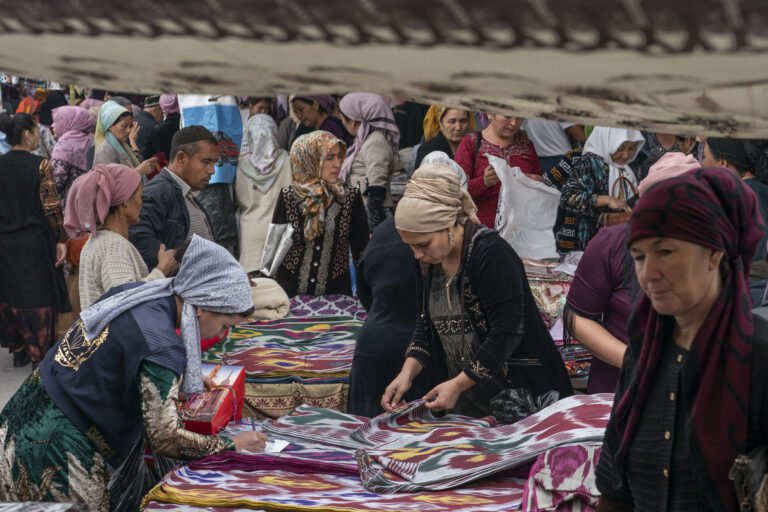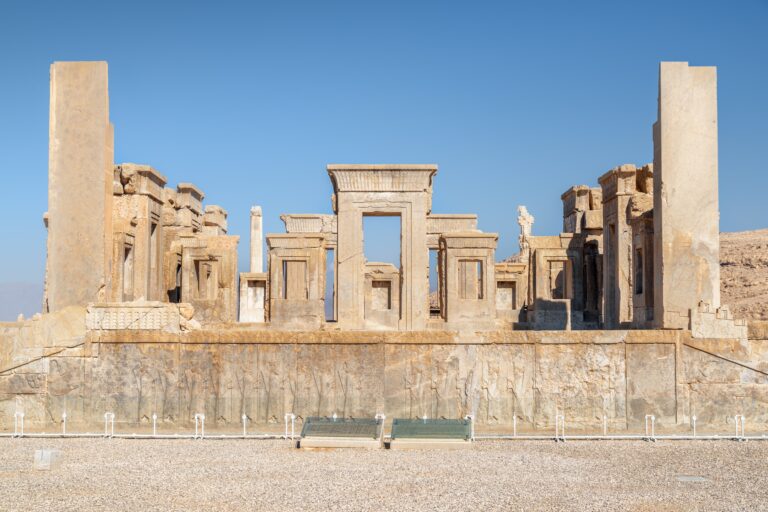Unpicking Uzbekistan
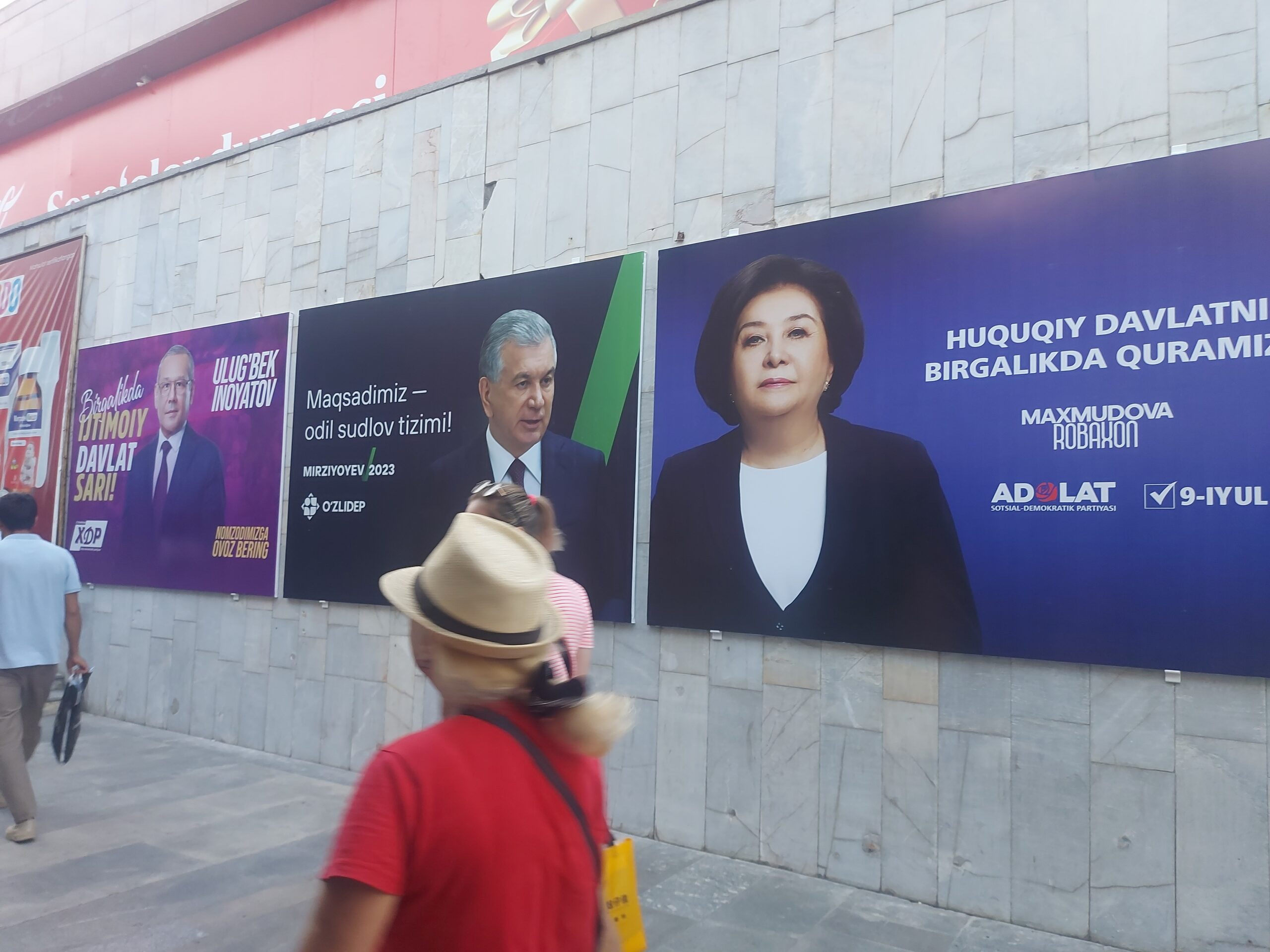
Joanna Lillis is a Kazakhstan-based journalist and the author of Silk Mirage: Through the Looking Glass in Uzbekistan and Dark Shadows: Inside the Secret World of Kazakhstan
One overcast morning in late 2016, I sat beside a flower-strewn grave on the terrace of a mosque in Samarkand, as mourners bowed their heads reverentially while a mullah intoned prayers. It was a pivotal moment, for this was no ordinary grave. This was the final resting place of Islam Karimov, whose name had become a byword for brutality over the quarter of a century that he had ruled this strategic land at the heart of Central Asia.
Some Uzbeks were secretly breathing a sigh of relief at the departure of a tyrant whose mercilessness had turned Uzbekistan into one of the world’s harshest dictatorships, as his henchmen tortured dissidents and massacred protesters. Others, like these mourners, were shedding a few tears for a man they considered the country’s founding father, who had steered Uzbekistan into independence when the Soviet Union collapsed in 1991. “He was our grandfather,” lamented one young man who, at twenty-five, was the same age as his country and had never known another leader. “Now he’s gone.”
Uzbeks were divided on Karimov’s legacy, but united on their expectations for the future. Few expected the authoritarian status quo to change – and fewer still harboured hopes of a political thaw, after decades of living in a deep freeze. This was regime consolidation rather than regime change, as Shavkat Mirziyoyev, Karimov’s hard-line prime minister, segued into the presidency. But Uzbeks were in for a shock, as Mirziyoyev proceeded to tear up the Karimov playbook and embark on liberal reforms to build what he called a “New Uzbekistan”.
This heady time of dynamic change – hyperbolically dubbed the “Uzbek Spring” – is the story that takes centre stage in my newly-published book: Silk Mirage: Through the Looking Glass in Uzbekistan, based on my 24 years of variously living in, travelling around and reporting from the country.

A climate of fear
I got my first glimpse of Karimov in person on 1 September 2001, as I sat on Independence Square in the capital, Tashkent, watching Uzbekistan celebrate its 10th anniversary of independence. I had just moved to Uzbekistan from Moscow to work at BBC Monitoring, a service that analyses foreign media reports. Uzbekistan came as a culture shock: Russia, where I had lived for much of the 1990s, was authoritarian, but (at that time) far from the full-blown police state I now found myself living in.
For a start, Russia had a lively – if often repressive, and sometimes violent – political scene with a vibrant opposition, and punchy media outlets reporting on it. Uzbekistan had no such thing: opposition figures were behind bars or in exile; parliament was a soporific rubberstamp talking shop. The only visible politician was Karimov: his minions hardly dared show their faces, let alone try to eclipse him. Mirziyoyev had reportedly issued orders not to show him on TV, for fear of angering his prickly boss.
The media was muzzled. The news reported, Soviet-style, on cheerful farmers meeting cotton harvest quotas (actually met by using child labour) or Karimov opening factories as smiling workers looked on. Politics looked like a one-man show, although it wasn’t: calling the shots behind the scenes was a shadowy figure called Rustam Inoyatov, who headed the security service, which – like its boss – had morphed out of the Soviet KGB and was responsible for crushing dissent, which it did with sadistic alacrity.
In 2002, two religious dissidents died a gruesome death in a brutal prison camp called Jaslyk following immersion in boiling water. Thus Karimov became notorious as the dictator who boiled his opponents alive, and the gunning down of protesters in the Fergana Valley in 2005 – the “Andijan massacre” – only enhanced his reputation as a ruthless brute.
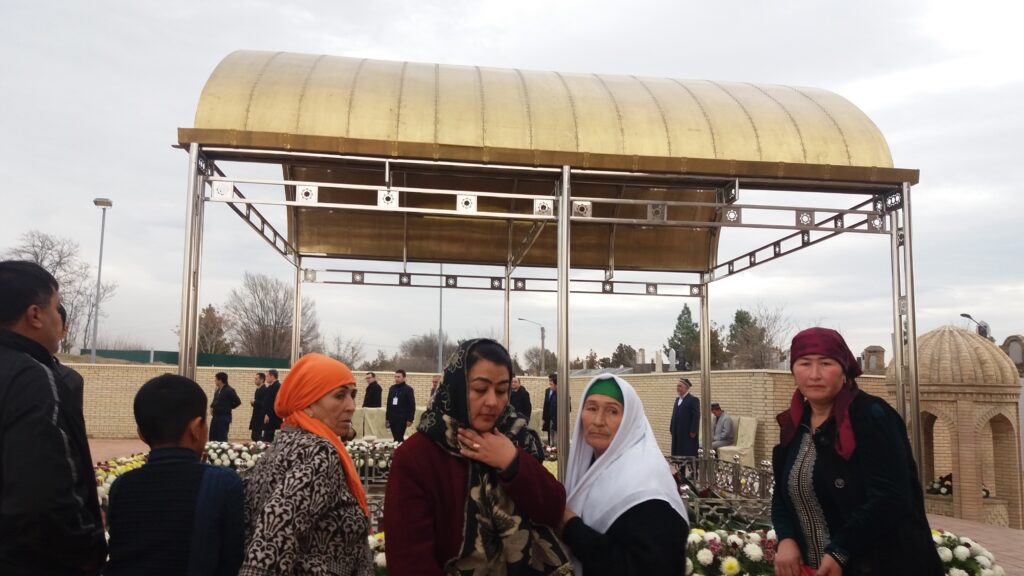
The winds of change
When Mirziyoyev came to power against this grim backdrop, Uzbeks were both astonished and delighted when he promised to rein in the excesses. “He’s a great guy! Everybody likes him,” raved one young man, giving a hearty thumbs-up, when I visited in 2017. “He’s changing things. Life is getting better!” This was a year on from Karimov’s death, and never had I sensed such optimism – euphoria even – in my sixteen years covering Uzbekistan. I had long since moved to Kazakhstan, but still visited regularly, albeit not as a reporter since foreign journalists were barred.
There were astonishing sights as Mirziyoyev started to build his New Uzbekistan: political and religious dissidents walking out of jail instead of thrown behind bars; forced labourers ordered out of the cottonfields instead of into them; Uzbek journalists told to air problems instead of covering them up; foreign reporters (including me) let back into Uzbekistan; borders with Central Asian neighbours (sealed by the isolationist Karimov) thrown open. Some changes were subtle but telling. I heard the Muslim call to prayer – silenced by Karimov under his crackdown on Islam that saw thousands of pious Muslims thrown behind bars – ringing out. I changed money in a bank rather than with a dodgy trader in the bazaar, because Mirziyoyev had rid the country of a black market that benefited the few at the expense of the many. I saw cars zooming up and down a road that Karimov had kept closed, so he could sweep through in his motorcade with machine-gun-toting security officers hanging menacingly out of the back. To Uzbeks, all this symbolised a new, people-friendly Uzbekistan that was throwing off the shackles of dictatorship.
In 2018, I travelled to a depressed town in environmentally-blighted Karakalpakstan, an autonomous republic within Uzbekistan which had been devastated by the shrinking of the Aral Sea (caused by reckless Soviet irrigation projects). An event that would have been unthinkable under Karimov was taking place in Moynaq, by a “ships’ graveyard” of vessels beached on the sand where the waves had once lapped. Where Karimov’s buttoned-up Uzbekistan had censored “satanic” heavy metal and rap music, Mirziyoyev’s government had thrown its weight behind Stihia, a quirky electronic music festival out in the desert. This sight encapsulated a moment of hope in a changing Uzbekistan – but not everything was changing.
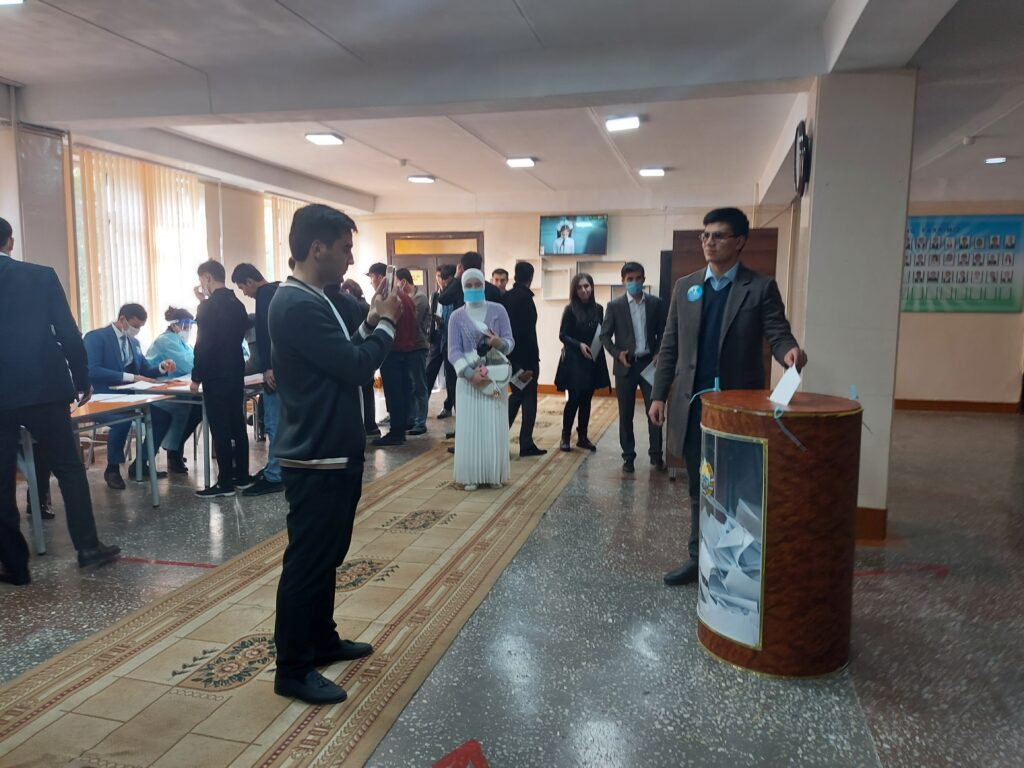
Clampdown after the thaw
There are red lines in Mirziyoyev’s New Uzbekistan, which people cross at their peril. Criticising the president has been made a crime, and people are frequently slung behind bars for years for careless remarks on social media. Public protest is a no-no, as the Karakalpaks have found out.
Protests erupted in Karakalpakstan in 2022, over plans to introduce sweeping changes to the Uzbek constitution which included stripping the Karakalpaks of their right to seek independence. This caused umbrage among a minority with a distinct language and culture, which guards its autonomy jealously. Security forces opened fire, and 21 people – 17 of them civilians – died in the turmoil.
I arrived in Nukus, Karakalpakstan’s capital, one boiling July morning to find a city in shock and under a state of emergency, armoured vehicles and armed security forces patrolling. A man staggered howling out of the morgue, after finding the body of his brother inside. Relatives wept outside hospitals, where the injured lay unconscious, or stood outside the police station seeking news of missing loved ones – stories I recorded until an irate officer hauled me inside (I was released after a couple of hours). I was the only foreign reporter to cover the violence from the ground, and Silk Mirage contains the fullest account yet published in English of what happened during those dark days in Karakalpakstan.
I reported on the ensuing trials, which saw scores of Karakalpaks convicted. The longest sentence went to Dauletmurat Tajimuratov, a community leader now serving a 16-year prison sentence – despite being caught on video urging the protesters to remain peaceful. Three law-enforcement officers were jailed over torture of detainees, but no-one faced trial for the shooting of unarmed civilians.
The violence in Karakalpakstan seemed to mark the end of Mirziyoyev’s honeymoon period. Was the Uzbek Spring over? Was winter setting back in?
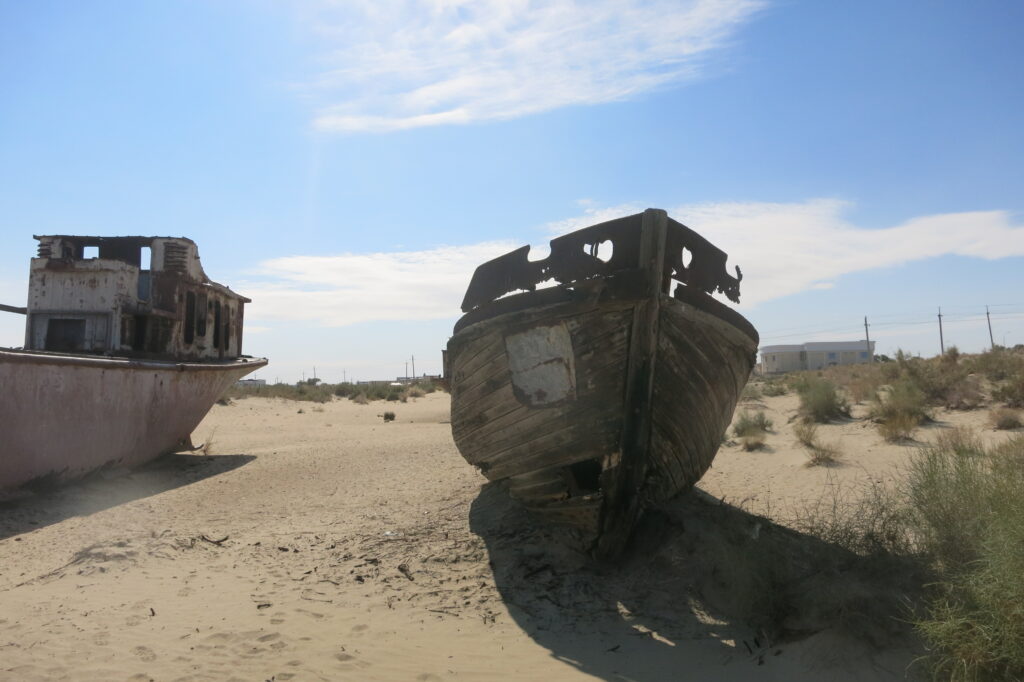
A voice for the people
Mirziyoyev should have been leaving office next year: he was elected in 2016, with the right to serve two five-year terms. Instead, just as Karimov did, he has presided over constitutional reforms allowing him to perpetuate his rule. Re-elected in 2023 with an 87% landslide (no opposition ran, since none is tolerated), he is now serving a seven-year term until 2030, and can then, theoretically, stand again to rule until 2037. Much has changed for the better for many Uzbeks under Mirziyoyev – yet, from this point of view, the New Uzbekistan looks very like the old one.
So spring has struggled to break through in what was, under Karimov, one of the world’s most totalitarian states – yet Silk Mirage is not a tale of doom and gloom. It tells Uzbekistan’s story through the voices of Uzbeks who have lived through these tumultuous times: from politicians to former political prisoners, from journalists to human rights crusaders, from entrepreneurs to environmentalists, from artists to architects, from silk-makers to carpet-weavers. Their indefatigable spirit shines through, as they push to find the cracks in an authoritarian regime through which the light gets in.
The opinions expressed are those of the contributor, not necessarily of the RSAA.
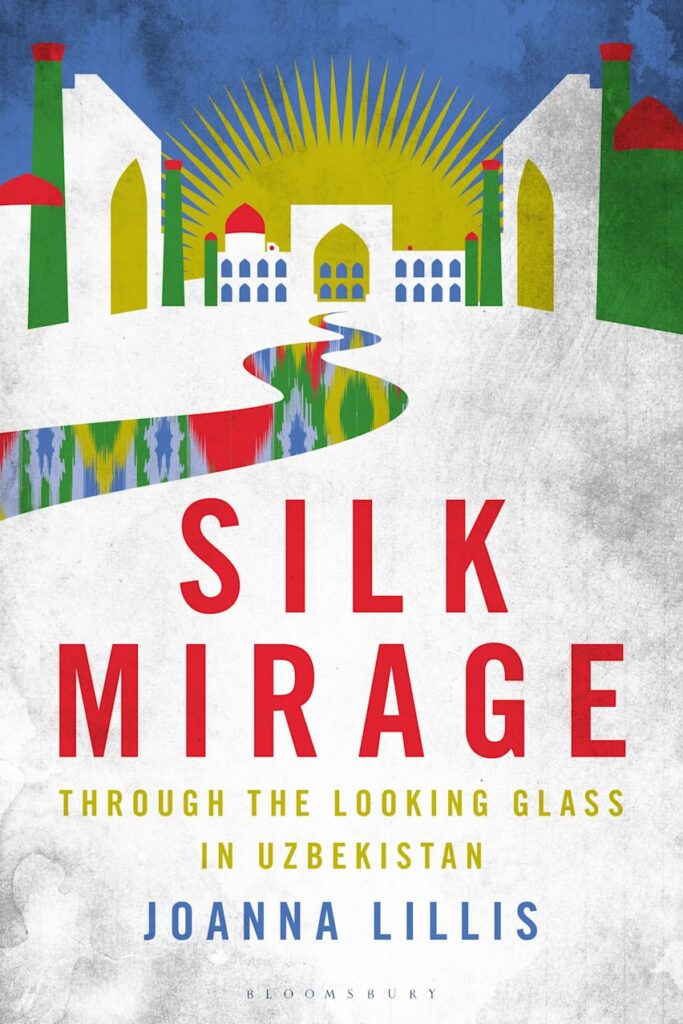
Silk Mirage: Through the Looking Glass in Uzbekistan
Silk Mirage is a compelling portrait of Uzbekistan, a country at the heart of the ancient Silk Road and now the centre of a power struggle between reformers and reactionaries for the soul of this strategic land in Central Asia. Conjuring up Uzbekistan as a place full of life and loss, Silk Mirage tells the stories of courageous people who probe to find the cracks in an authoritarian regime through which the light gets in.
When purchasing from the Bloomsbury Publishing website use the discount code SILK20 at checkout to receive 20% off.

